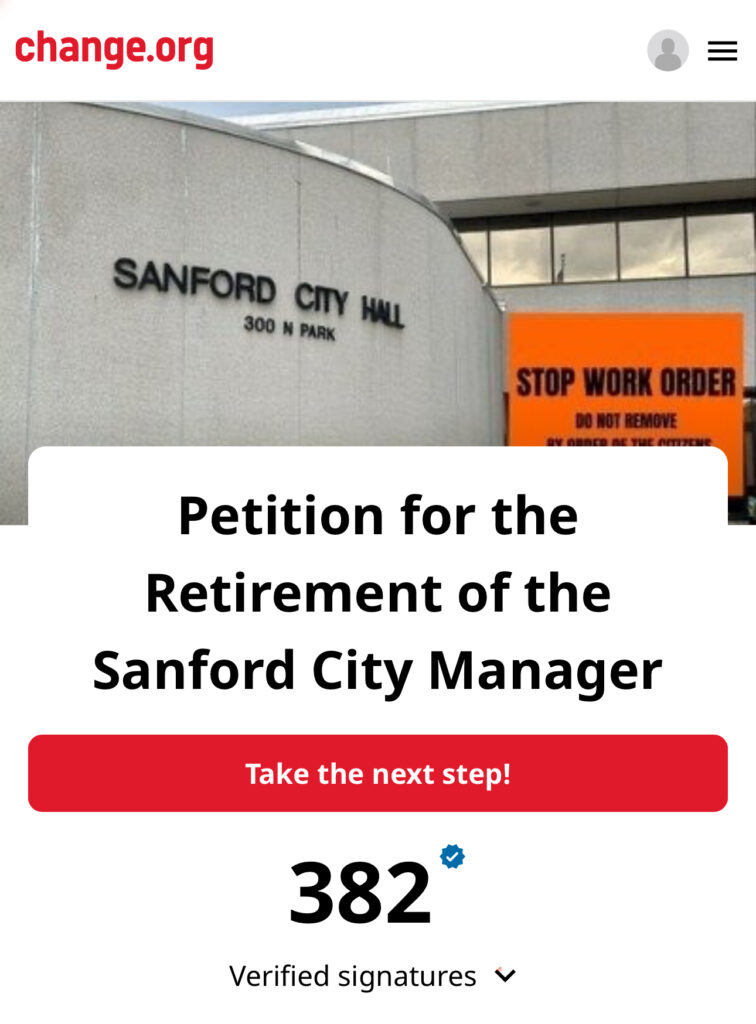City Hall, Sanford FL.
Local business owner Christina Hollerbach, CEO of Hollerbach’s German Restaurant, filed a petition on Tuesday with support from other residents– calling for the firing of Sanford City Manager, Norton Bonaparte. They believe he “has failed to address critical issues in Sanford”, including ongoing flooding and drainage problems, a slow permit process affecting businesses, and the cancellation of the Heritage Park waterfront project after nearly a decade of planning.
As Sanford, Florida, grapples with the rising tide of discontent surrounding its city manager, Norton Bonaparte, petitions for his removal have ignited a critical conversation about the future of the city’s governance. Amidst the blame game between the city council and the manager over policy decisions, residents are left wondering: Is it time for a new manager, or should Sanford consider a new system of government altogether? This question is particularly pressing as the city experiences significant growth and looks to larger cities like Orlando and Miami, which successfully operate under strong mayor systems.


To understand the implications of this debate, it’s essential to define the two governance models. A weak mayor system features limited executive powers, with the city council holding significant authority. Decision-making often involves collaborative discussions, but this can lead to gridlock and a diffusion of responsibility. In contrast, a strong mayor system grants the mayor greater executive power and independent authority, allowing for more decisive leadership. Cities like Orlando and Miami exemplify this model, where mayors can make quicker, more impactful decisions on urban issues.
In Sanford, the current government structure reflects the challenges of a weak mayor system. The city manager and city council have recently faced controversies, with accusations of poor decision-making directed at the manager while he counters that the council is responsible for approving policies. This tug-of-war illustrates how the existing framework can hinder accountability and effective governance, particularly in a city poised for growth.
Both systems come with their own sets of advantages and disadvantages. The weak mayor model encourages collaborative decision-making and checks and balances, yet it can lead to inefficiency and a culture of blame, as seen in recent Sanford disputes. On the other hand, while the strong mayor system offers clear accountability and faster decision-making, it raises concerns about the potential for an over-concentration of power, which could alienate residents and diminish democratic participation.
As Sanford continues to develop—boasting a zoo, airport, and a vibrant downtown—the question of governance becomes increasingly urgent. Local leaders and residents alike must consider how the chosen system will affect urban planning and community services. Gathering insights from community members, city officials, and local leaders can provide valuable perspectives on what governance model will best support Sanford’s future. Ultimately, the ongoing discussions about governance will shape not only the city’s immediate decisions but also its long-term trajectory, urging all stakeholders to engage actively in the conversation.



